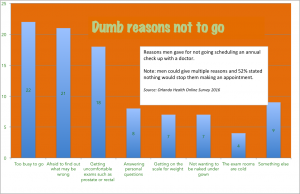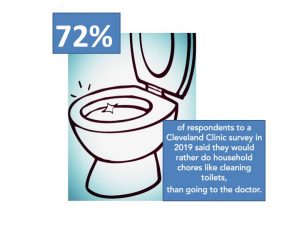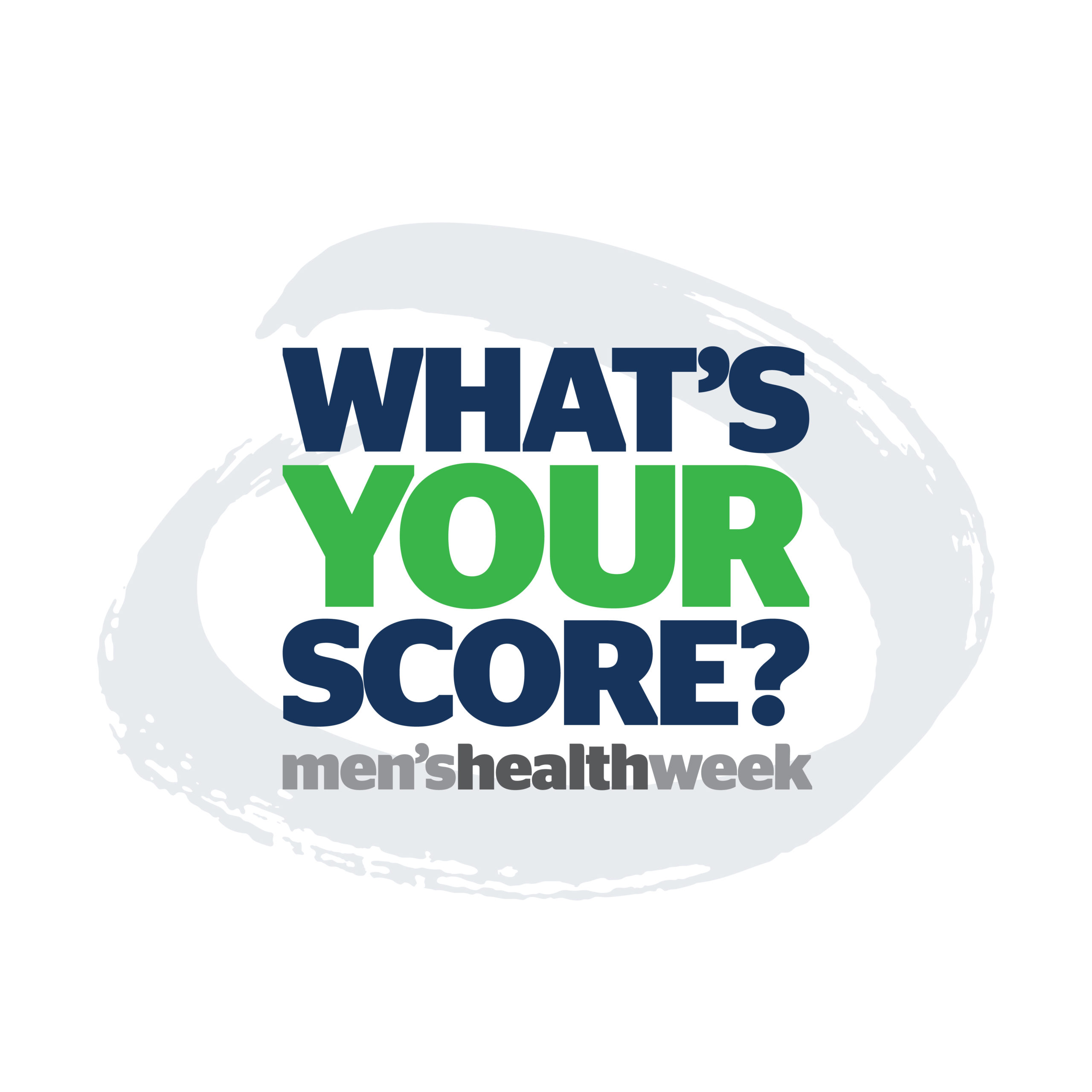Lets face it, us men are really bad patients. Compared with women, we avoid going to the doctor, skip more recommended screenings and practice riskier behavior.
Funnily enough, we also die about four or five years sooner, live with more years of bad health and have higher suicide rates.
Avoiding = unconscious (and bad) dude logic
We avoid the doctor and routine physicals and screenings with a devious cunning. It isn’t because we’re tough or less susceptible to illness. It’s because we’re idiots.
Instead of embracing the power of knowledge and early detection, we stubbornly resist information and treatment for the short-term gain of autonomy and convenience.
By avoiding the details of our lives, they won’t affect us. If ignorance is bliss, then making things easy is awesome. That’s unconscious dude logic.

We have to get over ourselves
Experts believe efforts must be made to break down the cultural and social barriers that have led generations of men to view health complaints as a sign of weakness.
Researchers say that men are conditioned from a young age to avoid sharing emotions, feelings or stressors. Just as guys needed to put health issues behind him while chasing down that mammoth millennia ago, in today’s sports competition, male athletes more often feel pressure to play through pain and injury.
It’s to do with this twisted masculinity we have, one that says you don’t talk to others about your problems, and if there is a problem you fix it yourself. If we do talk about our health is is too often more likely to brag about “hero” injuries like a broken arm from a sporting outing gone wrong, or stitches from a close call on the site.
We guys often don’t want anyone infringing on our autonomy. We want to drink, play sports, and eat what we want, whenever we want, just like we did we were twenty.


We avoid the doctor to avoid being told what we don’t want to hear. When our girlfriends or wives ask about our health, we often lie. We withhold information. We do the same with doctors. When a doctor asks, “Any specific issues to address?” too many of us say, “No, I feel great,” even when we don’t.
Ladies have sussed it far more than guys have
Women have a far stronger record when it comes to regular care, in part because women’s health is so linked to reproductive health. Issues such as birth control and abnormal periods bring women to the doctor more regularly and at an early age. Women get in the habit. They get used to making appointments and keeping up on their body’s health.
Another reason is cultural: it seems women are more used to asking for help. They’re comfortable with it, less threatened by the implicit vulnerability of assistance. When there is family involved, innate nurturing instincts often mean women are far more likely to assume the role of care organiser and family health manager.
Men can be stubborn, know-it-alls, and mansplainers. Asking for help isn’t a sign of weakness but rather it is a sign of strength.
Overcoming the basic obstacle of being reluctant to talk about intimate health issues is not just a manly thing to do but the smartest (and really only) option we have. It’s a necessary part of protecting yourself and staying healthy.
Manning up means being honest and open about your health, not the opposite.

